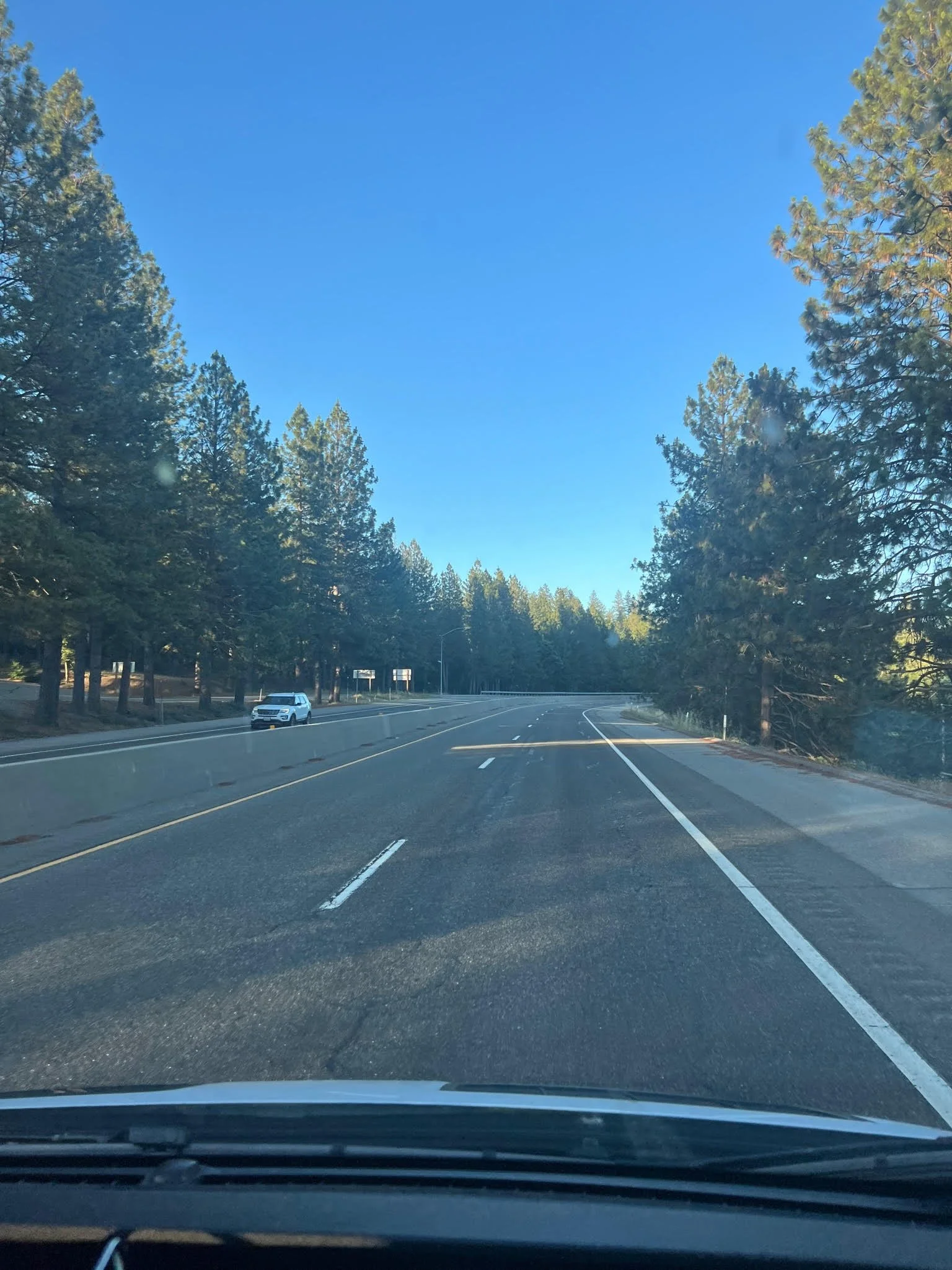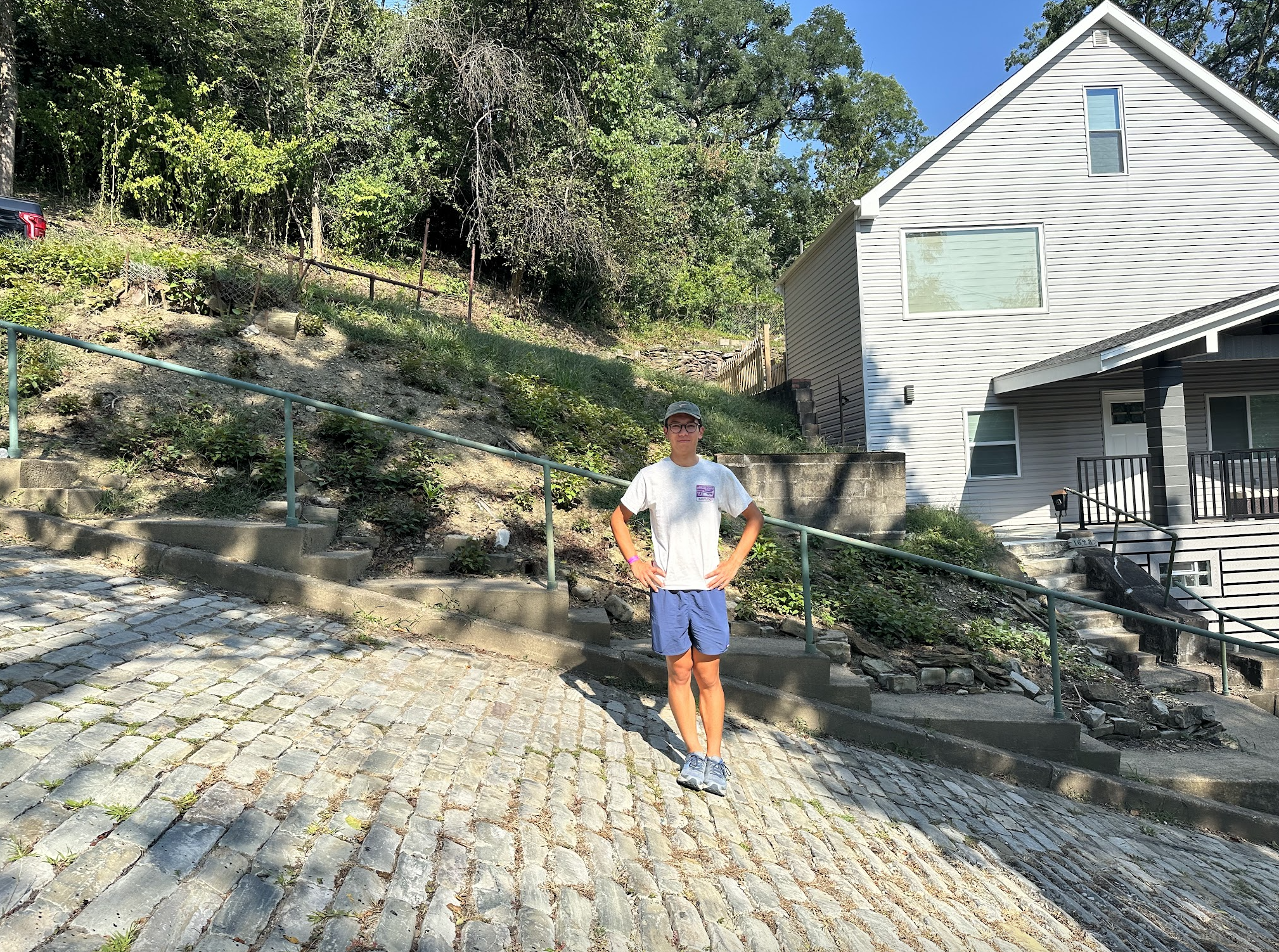A special thanks to our partners at Stanford Digital Education, our teaching sites, and all who supported our journey along the way!
For six Stanford undergraduates with minimal cycling or teaching background, a summer of biking and teaching across the country is a summer of steep climbs and steeper learning curves.
Every year, a team of 6 to 7 Stanford students known as Stanford Spokes bikes from San Francisco to Washington, D.C. Along the way, the Spokes teach self-designed educational workshops for over 250 K-12 students at schools, libraries, and learning centers—with the goal of bridging educational divides in the United States.
From June 16th to August 25th, 2023, we and the four other members of Spokes 2023 found ourselves fixing flat tires and tailoring lesson plans, settling into pedaling rhythms on the one hand and teaching routines on the other—learning to bike tour and learning to teach, all at the same time.
Luckily, we have had the privilege of being connected to a wealth of educational resources and expertise on campus, in particular the folks at Stanford Digital Education (SDE)—the unit that sponsors Spokes. SDE works to “accelerate social mobility and individual growth through digital innovation in teaching and learning.” With the support of SDE, our team was empowered to bring what we’ve learned at Stanford into learning spaces across the country this summer.
We began brainstorming and designing our lessons in the spring. Many of us were inspired by our respective majors and other coursework we had pursued at Stanford. One workshop, for example, encouraged students to think about photographs like a historian by having them experiment with taking photos themselves. We asked a question Stanford students grapple with in their history classes: How should historians and students of history handle bias—in their sources and in themselves—in order to construct the most honest historical narrative they can?
As the content of our lesson plans began to take shape, we also considered our audience: students in grades K-12, mostly children and pre-teens, with a wide range of educational backgrounds. How could we adapt complex ideas taught in college courses into 1-hour workshops that both engaged and educated younger students?
To help us along, Spokes alum and SDE graduate fellow Parth Sarin introduced the team to pedagogical concepts such as enduring understandings and universal design for learning. We learned to frame our workshops around 1) the core understandings we wanted students to walk away with and 2) hands-on, project-based activities—a key component of Spokes’ teaching model. We felt more or less ready to teach.
Beautiful weather for launching bottle rockets at 4H Lab:Revolution in Farmington, Missouri. Photo by Anna Wang
Students learning charcoal drawing in the “Art as Meditation” workshop at Inclusion Connections in Olathe, Kansas. Photo by Helen Tian
Putting our workshops into action, however, quickly made it clear that teaching is more than just a lesson plan. Planning could only get us so far. When we left campus, our lessons existed as Word documents on personal laptops and unopened boxes of teaching supplies; none of us knew exactly what would happen when students engaged with our workshops. It was only over the course of the summer that we discovered how difficult it can be to strike the right balance between the workshop’s hands-on activity and its learning goals for our youngest students, for instance, as well as how complicated it is to teach certain workshop topics, such as social identities and intersectionality, in conservative regions of the country.
As a community of budding educators, our journey of learning to teach and to enjoy teaching was, above all, a journey of embracing flexibility. After each teaching day, we would reflect as a team about what went well and what we wanted to change, and members who assisted or observed a workshop shared feedback with the workshop leader. Our discussions made it clear that we needed to tailor our lesson plans for each teaching day to fit the students and local community—for example, we added colorful balloons to the bottle rocket workshop for younger students with extra energy and curated local historical archives to use when showing students the fundamentals of historical research.
Sitting down with Dutchtown Opportunity Coalition for Youth staff and students at the Thomas Dunn Learning Center in St. Louis, Missouri for a lunchtime Q&A about attending college. Photo by Caitlyn Dorion
Outside of our workshops, we were also deliberate this summer about serving as resources for students interested in pursuing higher education. By chatting with them about their dreams and hobbies, their academic interests and career aspirations, we hoped to help validate the futures they imagined for themselves.
During a lunchtime Q&A organized by the Dutchtown Opportunity Coalition for Youth, an organization that works with youth from St. Louis neighborhoods with high crime rates, we not only answered questions about our college experiences, but also learned about the students’ diverse interests—ranging from cheer and step teams to psychology research—and talked about pursuing these passions beyond high school. The casual conversation during lunch encouraged all students to take space in the classroom as well: in the “Social Identities and Intersectionality” workshop that followed, students who had been quiet in the morning workshops volunteered to share about discriminatory social dynamics they struggled with at school.
Now that Stanford Spokes 2023 has come to an end, we want to say one final thank you to all the teaching sites and staff who gave us the space to teach our workshops—without your longstanding ties to the local community and commitment to education, Spokes would not look the way it does today. And, to all the students who showed up to our workshops, we hope we were able to encourage and challenge you to keep learning—as you certainly did for us.
Signing off now,
Anna Wang & Helen Tian





















